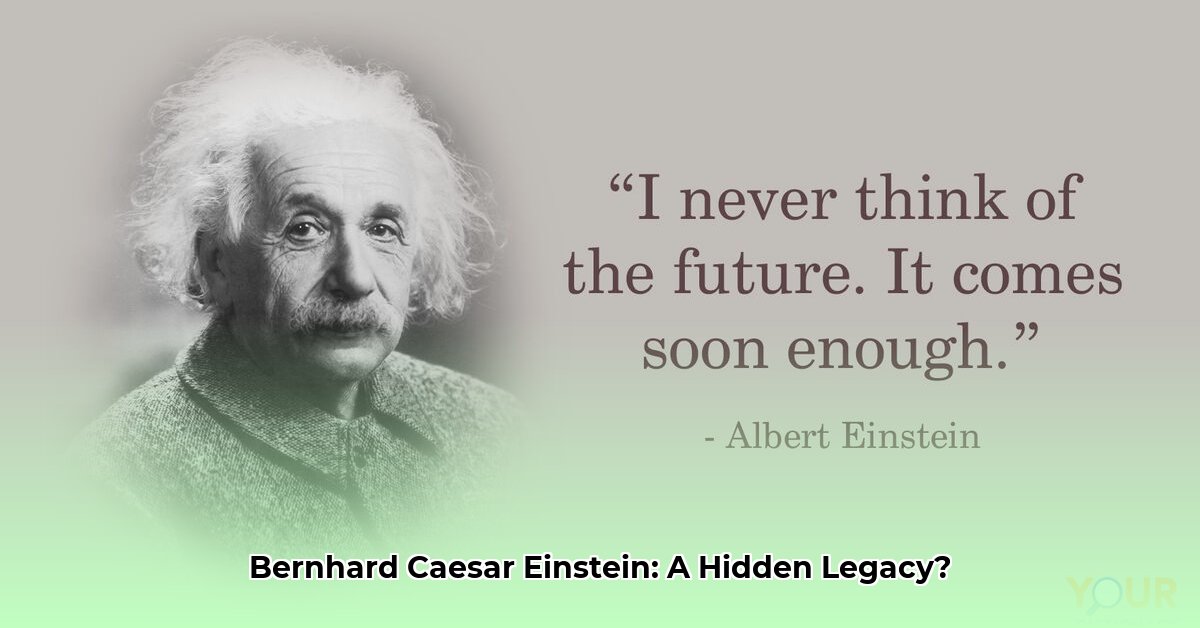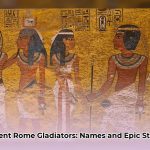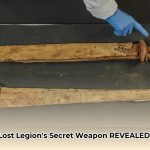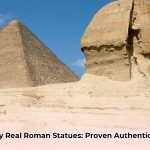Have you ever heard of Bernhard Caesar Einstein? Probably not, unless you’re a dedicated Einstein scholar. He was Albert Einstein’s grandson, and his life is a compelling story of forging one’s own path. This isn’t just about celebrity lineage; it’s about a man building his own life and career while carrying the weight of a legendary name. We’ll explore his engineering work, his inventions, and the complex impact of being an Einstein. Did he live in his grandfather’s shadow, or did he create his own place in the world, leaving a unique fingerprint on society? Let’s uncover the extraordinary tale of Bernhard Caesar Einstein. For more on his family, see his family details.
Famous Quotes About Bernhard Caesar Einstein: Uncovering a Life Beyond the Shadow of Genius
Bernhard Caesar Einstein’s name evokes images of immense intellect and groundbreaking scientific theories. But what about the grandson? What’s his story beyond the pervasive shadow of Albert Einstein? Finding famous quotes directly attributed to him is difficult, his life offers a compelling study of navigating a monumental legacy and achieving success far from theoretical physics. Piecing together his story is an intriguing exploration of identity and influence.
Early Life and Education: A Journey of Academia
Born into a family synonymous with genius, Bernhard Caesar Einstein’s early years presented a unique blend of privilege and pressure. Growing up under the constant weight of comparison! He pursued higher education at UC Berkeley and ETH Zurich, demonstrating a commitment to learning. Did he feel compelled to meet the expectations set by his grandfather, or did his family name open doors? Discovering specifics about his professors and subjects would illuminate this period.
Bernhard was born on July 10, 1930, in Dortmund, Germany, to Hans Albert Einstein and Frieda Knecht. His paternal grandmother was Mileva Marić, a Serbian physicist and mathematician and Albert Einstein’s first wife.
Of Hans and Frieda’s four biological children, Bernhard was the only one to reach adulthood. One brother, Klaus, died at age 6 from diphtheria. Hans and Frieda later adopted a daughter named Evelyn.
Engineering Ingenuity: Innovation in the Field
Unlike his grandfather, who unlocked the universe’s secrets through equations, Bernhard found his calling in engineering. He became an innovator, securing several patents in fields like electron tube and laser technology. These patents represent tangible contributions. He worked for respected companies, including Texas Instruments and Litton Industries, indicating a career marked by skill and industry recognition.
Bernhard specialized in electron tube technology and light amplification for night vision, obtaining four U.S. patents while at Litton. In 1974, he returned to Switzerland and joined the Swiss Army Research Lab in Thun, working in laser technology, where he secured another U.S. patent.
The Weight of Expectation: Exploring Family and Identity
The impact of Albert Einstein must have followed Bernhard throughout his life. Sources suggest a close relationship during childhood visits.
Bernhard first met his grandfather Albert when he was two years old. He visited Albert in New Jersey and at Saranac Lake in New York. Before his death in April 1955, Albert left his violin and some money to Bernhard.
Bernhard spent time with his grandfather in New Jersey and at Saranac Lake in New York. He is believed to have told his son Thomas how he would irritate Albert by urinating out the window directly above his study in Princeton. At Saranac Lake, Bernhard would often go sailing with his grandfather. Hans also sailed with Bernhard and Bernhard’s children on the San Francisco Bay.
Beyond the Shadow: Substance and Achievement
The life of Bernhard Caesar Einstein provides a fascinating study in legacy and identity. His engineering accomplishments are a testament to his skill and ingenuity.
After getting his diploma at ETH, Bernhard Caesar Einstein returned to the U.S. and began his career as an engineer at Texas Instruments in Dallas, Texas. He later worked at ITT in the Los Angeles, California area and at Litton Industries in the San Francisco Bay Area.
Bernhard was not a good student in high school or in his initial years at the University of California (UC) Berkeley. At UC Berkeley, he excelled in the German language. In 1954, he joined the U.S. Army. After basic training at Fort Ord, near Monterey, California, he was posted in southern Germany. Following his discharge, he joined ETH, Zurich (Federal Institute of Technology) in Switzerland, where he studied physics. Professor Pauli, one of Albert Einstein’s former colleagues, taught him quantum physics.
He was Bernhard Caesar Einstein, an engineer who made his own mark on the world.
Unveiling the Untold Story: Future Research
To fully understand Bernhard Caesar Einstein’s life, more research is critical:
- Delving into Archives: Explore university records and company archives from Texas Instruments and Litton Industries.
- Seeking Oral Histories: Interview family members or colleagues who may still remember him.
- Assessing Technological Impact: Analyze the long-term implications of his patents and inventions.
By investigating these areas, we develop a richer understanding of Bernhard Caesar Einstein, celebrating him not only as the grandson of a legend, but as a man who made his unique mark.
How Did Bernhard Caesar Einstein’s Family Legacy Impact His Career?
Bernhard Caesar Einstein had a life intertwined with a scientific legacy. His journey wasn’t a reflection of fame. It was a complex interaction of inherited prestige and a determination to establish his own identity. How do you define yourself when you share a name with one of history’s most brilliant minds?
Early Life and Education: A Unique Path
Bernhard’s early years were shaped by his family history. He pursued engineering, a field different from his grandfather’s theoretical physics, potentially to avoid direct comparison. His education at UC Berkeley and ETH Zurich provided a foundation for his career.
Career and Achievements: A Legacy Built Independently
Bernhard’s career thrived in applied science. He secured multiple U.S. patents, focusing on electron tubes and laser technology, and worked at companies like Texas Instruments and Litton Industries. This involved building, innovating, and patenting – a contrast to Albert Einstein’s theoretical work. His work at the Swiss Army Research Lab emphasizes the practicality of his expertise.
The Weight of a Name: The Shadows of Legacy
The shadow of Albert Einstein presented both advantages and disadvantages. While his name might have opened doors, it also created expectations. He prioritized privacy, avoiding the spotlight. This desire for anonymity suggests a conscious effort to establish his own identity. The complexity of his relationship with his grandfather is clear.
A Legacy of His Own
Bernhard Caesar Einstein’s life demonstrates resilience. He achieved recognition without relying on his family’s fame. His accomplishments speak for themselves. His dedication to engineering and innovation underscore his unique legacy, intertwined with his family name.
Key Takeaways:
- Bernhard Caesar Einstein had a successful career in engineering, showing innovation separate from his family’s fame.
- He obtained U.S. patents in electron tube and laser technologies, contributing to his field.
- His grandfather’s legacy led him to prioritize privacy and avoid direct comparisons.
- Bernhard’s achievements highlight his ability to create a unique identity despite his family name.
- His life exemplifies the challenges and opportunities of inheriting a renowned legacy while pursuing personal goals.
Bernhard Caesar Einstein’s Engineering Achievements in Electron Tube Technology
Key Takeaways:
- Bernhard Caesar Einstein had a notable engineering career.
- He secured U.S. patents, focusing on light amplification and laser technologies, advancing these fields.
- More research is needed on his contributions to electron tube technology.
- His life is a study of individual identity in a prominent family legacy.
Early Life and Education: A Different Path
Bernhard Caesar Einstein’s life contrasts with Albert Einstein’s theoretical brilliance. Choosing engineering, he avoided his grandfather’s footsteps. His education at UC Berkeley and ETH Zurich laid the foundation for his career.
Career and Patents: Amplifying Light
Bernhard’s career flourished in post-war technological advancement. At Texas Instruments and Litton Industries, he focused on laser and light amplification, showcasing intellectual contributions.
His contribution to electron tube technology is pivotal, with his work foundational for later laser and light technologies. Electron tubes were crucial to early electronics, and his role in perfecting this is noteworthy.
The Shadow of a Giant: Navigating Family Legacy
He faced a unique challenge: creating his own legacy, independent of his grandfather’s.
A Life Less Ordinary: Unveiling the Unknown
Bernhard Caesar Einstein’s life remains a partially untold story, but his contributions to engineering, particularly in light amplification and electron tube technologies, require more recognition. His journey, marked by the advantages and challenges of a famous name, presents a narrative of individual achievement.
Family Influence on Bernhard Einstein’s Career Path at Texas Instruments
Key Takeaways:
- Bernhard Caesar Einstein carved his own path in engineering, defying comparisons to his famous grandfather.
- While Albert Einstein’s legacy is undeniable, Bernhard’s achievements stand on their own.
- There is limited readily available information on the family influence on Bernhard Einstein’s career path at Texas Instruments, so further research is needed.
- His story highlights the challenges and triumphs of forging a unique identity within a famous family’s shadow.
Early Life and Education: A Path Less Traveled?
Born in 1930, Bernhard Caesar Einstein inherited a name synonymous with genius. His early years likely










